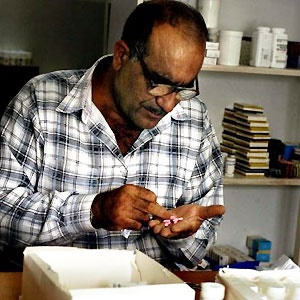
The Independent Community Pharmacy Association (ICPA), a body which represents the interests of independent pharmacies in South Africa, is challenging the Council of Medical Schemes (CMS), a statutory body established by the Medical Schemes Act (131 of 1998) to provide regulatory supervision of private health financing through medical schemes.
They also want them to do away with closed DSP’s and to re-look at the way co-payments are calculated (costs that are for your own pocket), as the current structure does not have the interests of the consumer or pharmacies at heart.
Closed DSP’s
A Designated Service Provider (DSP) is a healthcare provider (doctor, pharmacist, hospital etc.) appointed by your medical scheme to diagnose, treat or care for Prescribed Minimum Benefit (PMB) conditions of their members.
However, according to the ICPA,
medical aid schemes are able to decide who their preferred DSP is and usually
do not enter into any consultation with their members or the industry at large,
and importantly, they often exclude independent community pharmacies from these
DSP arrangements.
“This effectively deprives medical aid members of choice when it comes to where they can get their medicines from,” says Mark Payne, CEO of ICPA.
“It also means that independent pharmacies are deprived of a source of revenue from medical aid members who are forced to use a DSP. We believe that it should be the case of an open DSP, in other words a willing buyer, willing provider arrangement”.
Read: Why are designated service providers important?
Penalty co-payments
Coupled with the issue of closed DSP’s limiting a consumer’s choice, is the fact that if people choose to get their chronic medicines from a provider outside their medical aid DSP pharmacy network they will be charge a penalty co-payment.
“Currently it is accepted that if a
person chooses not to use the DSP selected by their scheme, they will have to
pay a portion of the bill as a co-payment. While we accept that
co-payments may be necessary, we are challenging how these co-payments are
calculated, as we believe the penalties are too high.”
The ICPA explains that if a person
uses a provider outside of their prescribed network they are required to pay a
penalty co-payment that is calculated as the difference between the
medical schemes tariff rate and that charged by the service provider that the
beneficiary consulted PLUS a percentage (ranging from 20% – 40%) of the cost of
the medicines.
This means that a consumer can end up paying in some cases 40% – 60% of the cost of their chronic medicines out of their own pocket while the medical scheme pays substantially less to the pharmacy than it would have, had the member visited the preferred provider pharmacy network.
Read: How to choose the right pharmacy for you
“In the end the consumer is
inconvenienced because they may use their local pharmacy for their acute
medicine but have to use another supplier for the chronic component otherwise
face high financial penalty co-payments – It’s an iniquitous system,”
comments Payne.
“We would like the Council for
Medical Schemes to address this undesirable business practice. It is in the
consumer’s best interest to be able to buy their medicines from the provider of
their choice without being charged a penalty. Consumers also need to be
aware that it is not their local independent pharmacy that is charging this
penalty co-payment but rather it is the medical aid scheme that they belong to
that implements the draconian rules”.
“We have put our challenge before the Council for Medical Schemes and hope to be able to report a favourable outcome soon,” concludes Payne.
What are community pharmacies?
Community pharmacies represent two thirds of all pharmacies registered with the South African pharmacy council (SAPC); the remaining third comprises public institutional, manufacturing, wholesale, private institutional and consultant pharmacies.
Community pharmacies are classified as either corporate or independently owned. Corporate community pharmacies are owned by large public or private companies, such as supermarket chains with in-store dispensaries and chains with a pharmacy-only business. Corporate community pharmacies also own wholesale and distribution companies and many are acquiring courier pharmacies.
Independent community pharmacies are generally owned and managed by one or more pharmacists.
Most independent and corporate community pharmacies in both urban and rural areas deliver primary care services, such as chronic disease management, health education and promotion, maternal and child health care and immunization.
Some corporate community pharmacies are in partnership with provincial health departments to offer free family planning and childhood vaccination services.
Source: WHO.
Read more:
What to look out for when choosing a medical aid




 Publications
Publications
 Partners
Partners










